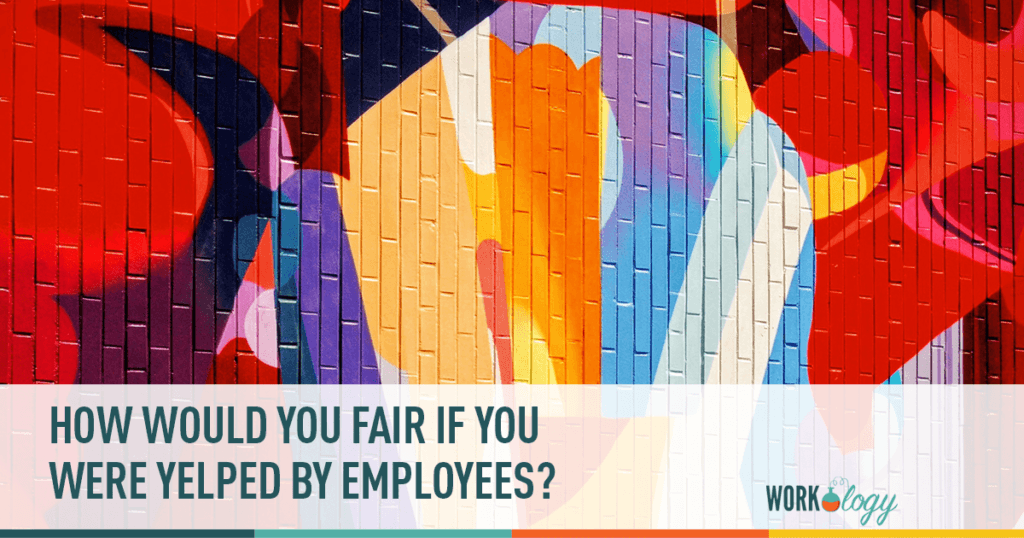In an article on Fast Company, titled The Rise Of Millennials, Crowdsourcing, And Automation Are Going To Reshape The World, readers were informed that rating sites are going to become a two-way street. We are in the throes of becoming what is called a “Rateocracy” where everyone can rate everyone.
Glassdoor, Yelp and Uber
Almost everyone in HR is familiar with Glassdoor. If you are not, go here and become so. It is a place where applicants can rate the experience they had with a particular company. I wrote about that in a post titled How to respond to a Glassdoor review and the growth of Rateocracy. Practically every consumer is familiar with Yelp. I doubt anyone tries an unfamiliar restaurant without checking out the Yelp reviews on the establishment. Uber, however, has expanded the review process by requiring their drivers to rate their riders. This rating may result in your not being able to get a ride if your behavior has been a bad experience for the driver. This reverse rating is also expanding with app called Peeple, where you have an opportunity to rate those around you.
Peeple is not a very popular idea right now, but I think it is going to take off eventually. On Glassdoor you can talk about the supervisors and managers you encountered. Additionally, talking about a supervisor or manager on Facebook is actually a protected activity for some employees as part of their working conditions under the National Labor Relations Act.
Rateocracy
I came across the concept of Rateocracy in a fascinating article in The Futurist written by Robert Moran, which was then republished in an amended form by Sodexo in their 2015 Workplace Trends Report. He wrote that there is going to be a new balance of power where consumers, suppliers and employees will be able to control the fortunes of companies by controlling the reputations of those companies. He called this new world a “Rateocracy.” He says that CEO’s in particular will be under the gun to
“work harder to align the corporation, its employees, and stakeholders around a shared vision. It will be increasingly difficult to sweep customer service and employee morale problems under the rug. CEOs of the Rateocratic era will have nowhere to hide, so they will have to be strong communicators and even better listeners. They will have to be as transparent as the new era.”
My guess is that much of the stress the CEO feels will be transferred to HR as the CEO looks to HR to manage the company’s reputation.
According to Moran the trend of rating others is going to get bigger and bigger as more employees and consumers start to use an ever increasing number of rating sites. It will not just be companies that will be rated but individuals as well. We will all begin to have our own transparent reputations that we will carry with us throughout our careers. Candidates will not only be able to look up whether they want to work for a company, they will also be able to determine if they want to work for a particular manager based on that manager’s ratings. The anonymity offered by a big company is going to be stripped away – and ultimately this will happen in small companies as well.
Reputation management
With the advent of Rateocracy sites reputation management will become critical for companies and individuals. Screw up as a company and you may not be able to hire anyone. Screw up as a manager and you may find yourself back in the ranks forever. Screw up as an individual and you may find that it has long term effects on your career opportunities. Look in the mirror tomorrow morning and ask yourself “Am I prepared to be Yelped?”









